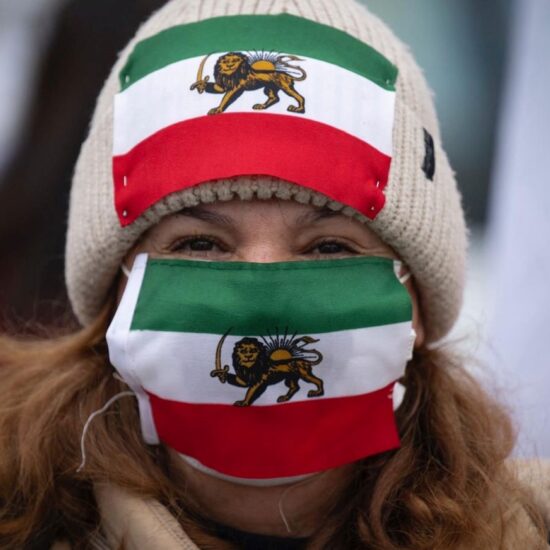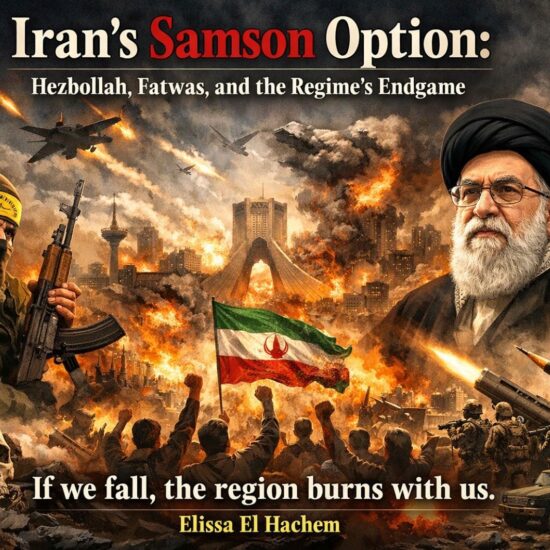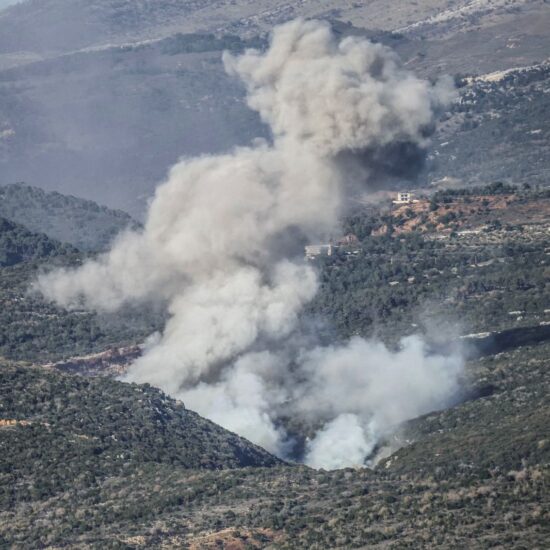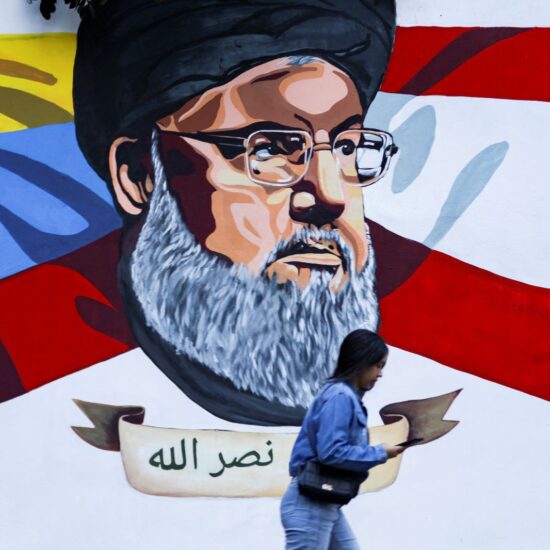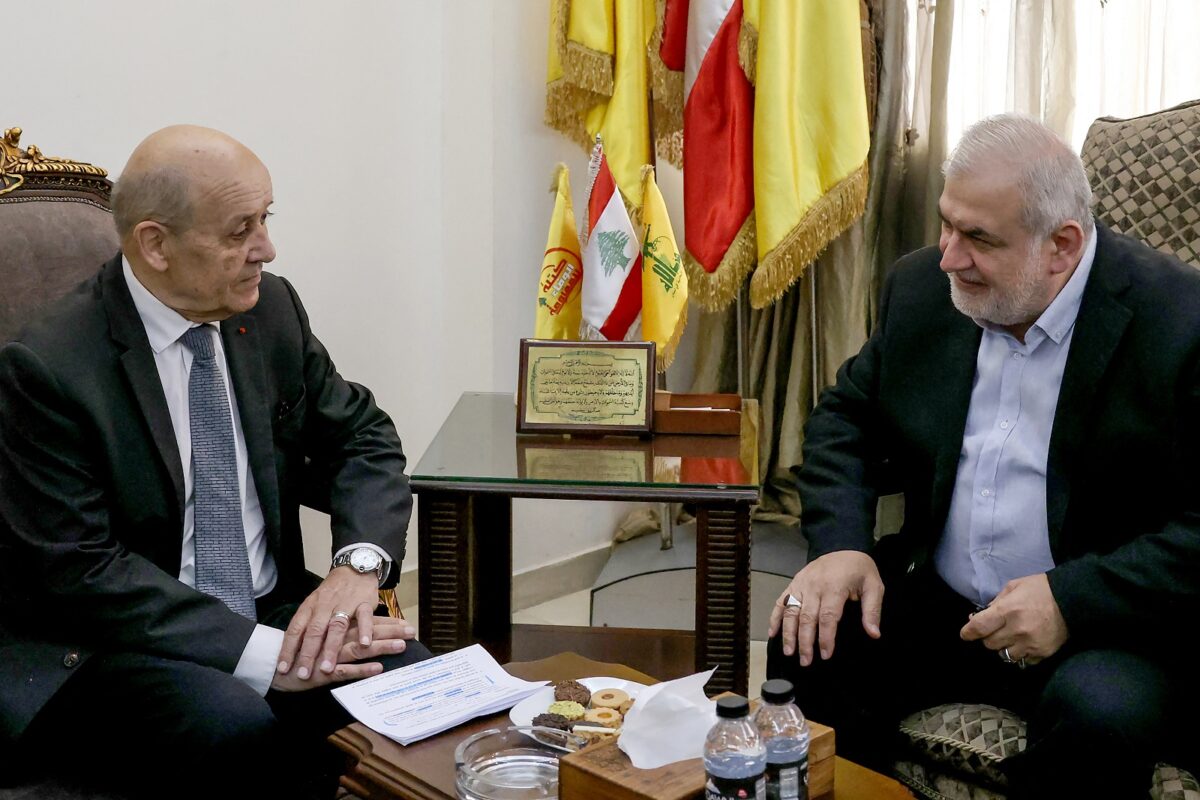
Last week, the French convoy struggled to make significant progress in finding solutions for the ongoing Israeli war in southern Lebanon. Israel appears hesitant regarding the ceasefire proposal, resulting in a continued stalemate and delayed talks in the region. Amidst the turmoil, the only glimmer of hope lies with the Riyadi football team
Despite meeting with key political figures, including the influential pro-Iranian Hezbollah, French special envoy to Lebanon, Jean-Yves Le Drian, left Beirut on Thursday without achieving a consensus among the political parties to elect a President. The impasse has persisted since the end of President Michel Aoun’s term in October 2022, with neither Hezbollah nor its opponents securing the necessary majority to elect a successor.
A French diplomatic source in Beirut reported that Le Drian “did not make a major breakthrough,” noting that “each party is clinging to its position.” Le Drian warned the officials he met that “the very existence of political Lebanon is in danger.”
This deadlock coincides with Lebanon’s severe economic crisis and escalating violence between Hezbollah and the Israeli army in the south, exacerbated by the war on Gaza. Le Drian underscored to his interlocutors the dangers of prolonging the political deadlock amidst this volatile regional context.
In Paris, Christophe Lemoine, deputy spokesperson for the Quai d’Orsay, stated that French Minister Stéphane Séjourné had spoken with his Lebanese counterpart Abdallah Bou Habib on Wednesday. Séjourné reaffirmed France’s dedication to supporting Lebanon’s sovereignty and stability and emphasized France’s efforts to facilitate de-escalation through diplomatic consultations among all parties.
Séjourné and Bou Habib also discussed the urgent need to resolve the institutional crisis by electing a President and forming a government capable of addressing the needs and expectations of the Lebanese people. Regarding a French proposal to de-escalate tensions at the Israel-Lebanon border, Lemoine mentioned that Lebanon’s response was “rather favorable,” while Israel had not yet officially responded to the proposal.
May 30, 2024: France, leveraging its historical ties with Lebanon, has put forward written proposals to both Israel and Hezbollah. These proposals suggest that Hezbollah’s elite forces withdraw 10 kilometers (6 miles) from the Israeli border, while Israel ceases its strikes in southern Lebanon. Additionally, the proposal addresses long-term border issues and has been discussed with international partners, including the United States, which is making its own efforts to de-escalate the situation and has significant influence over Israel.
Over recent months, Israel and Hezbollah have been involved in intensifying cross-border attacks, alongside the ongoing Israeli war on Gaza. This escalation, marked by increasingly advanced and far-reaching strikes, has heightened concerns about a broader regional conflict.
In Lebanon
May 31, 2024: Adam Afana is the first Palestinian child injured in the Gaza conflict to arrive in Lebanon. He has been receiving medical care at the American University of Beirut’s Medical Center since Monday, with assistance from the Ghassan Abu-Sittah Children’s Fund.
Adam came close to losing his entire left arm, and transporting him to Lebanon was a challenging endeavor. After his injury, he remained in Gaza for over six weeks, enduring constant bombings and undergoing emergency surgery on his arm without anesthesia.
In early December, his uncle managed to enter Gaza City from Egypt for a brief two-day period to escort Adam and his mother out through the Rafah crossing. Adam then spent six months in Egypt before finally being able to travel to Lebanon to receive the essential medical treatment he needed.
May 31, 2024: Amos Hochstein, senior advisor to the US President on energy issues, has proposed a detailed roadmap to de-escalate tensions between Lebanon and Israel, divided into three phases.
The first phase involves allowing residents of northern-Israeli and southern-Lebanese communities to return home, which requires strengthening the Lebanese Armed Forces through recruitment, training, and equipping, though specifics were not provided.
The Lebanese Army has not confirmed receiving the plan, but political sources told LBCI that Hochstein has been presenting these ideas since October 7. He intends to continue discussions during his next visit to Lebanon, linked to a ceasefire in Gaza.
Hezbollah has stated that Hochstein’s proposals are not yet viable, emphasizing that any agreement requires mutual consent and hinges on a ceasefire in Gaza.
June 1, 2024: The Democratic Gathering, led by MP Timor Jumblatt, is expected to re-engage with political forces in Parliament next week to address the current presidential deadlock. They aim to find a solution amidst ongoing crises, including the conflict with Israel and the Syrian refugee issue. The initiative seeks to unite Lebanese voices amid parliamentary division, with MP Timor Jumblatt taking the lead in this effort.
June 2, 2024: After an airstrike on the southern village of Bint Jbeil, caretaker Minister of Agriculture Abbas Hajj Hassan posted on his X account, stating, “In the early hours of dawn, the Israeli enemy targeted the city of Bint Jbeil, causing major damage to the city’s commercial market, the Serail, and the office of the Ministry of Agriculture, what we consider to be a very dangerous development and an attack on civilian facilities. We will work to file a complaint against the Israeli entity with the United Nations through the Lebanese Ministry of Foreign Affairs.”
June 3, 2024: A glimmer of positive news arises as the Lebanese Riyadi team claimed victory in the FIBA West Asia Super League (WASL) 2024 with a thrilling 100-90 overtime win against Sagesse in the Final, held Saturday night at the Lusail Multipurpose Hall. Wael Arakji’s outstanding performance played a pivotal role in securing the win for the reigning two-time West Asia League champions, solidifying their status as regional champions.
In The Region
More talks: An aide to Prime Minister Benjamin Netanyahu confirmed on Sunday that Israel had agreed to a framework deal proposed by the US President Joe Biden to de-escalate the war on Gaza, although he criticized it as flawed and requiring further refinement. Ophir Falk, chief foreign policy advisor to Netanyahu, told Britain’s Sunday Times that while the deal was accepted, it was not considered ideal, emphasizing Israel’s strong desire for the release of all hostages. Falk highlighted that there are numerous details that still need to be ironed out. He reiterated Israel’s long standing conditions, which include the release of hostages and the dismantling of Hamas as a terrorist organization.
Subsequently, the US State Department announced that Secretary of State Antony Blinken had discussions about the proposal with Israeli Defense Minister Yoav Gallant and Benny Gantz, a centrist minister in Netanyahu’s emergency coalition. In his conversation with Gallant, Blinken praised Israel’s willingness to reach a deal and emphasized that the proposal would advance Israel’s long-term security interests, potentially fostering greater integration in the region.
President Biden, who initially offered staunch support for Israel’s military actions, has now shifted towards expressing concerns over the high civilian casualties. He disclosed a three-phase plan put forward by the Netanyahu government to end the conflict.
Fighters killed: Early Monday, an NGO reported that at least 12 pro-regime fighters were killed in an Israeli airstrike targeting a factory near Aleppo, in northern Syria, overnight. The Syrian Observatory for Human Rights stated that “twelve pro-Iranian fighters of Syrian and foreign nationalities were killed” in the strike, which triggered powerful explosions in the town of Hayyan. In response, the Syrian Ministry of Defense issued a statement confirming the attack, stating that “the Israeli enemy launched an air attack from the southeast of Aleppo, targeting some positions” near the city. The Ministry added that the aggression resulted in casualties and material damage.
Banning the keffiyeh: Tunisia’s Ministry of Education has issued a ban prohibiting students from wearing “the Palestinian keffiyeh” or any attire deemed to influence the behavior of Baccalaureate candidates during examinations. In a statement, the Ministry emphasized its commitment to maintaining the integrity of educational institutions and stated its readiness to enforce penalties to uphold this principle. However, despite the ban, it reiterated its support for the Palestinian cause, aligning itself with the stance of the Tunisian government.
What We’re Reading
From Social Media to City Tours: The Journey of Samira Ezzo: Journalist Dana Hourany talks to Samira Ezzo about her unexpected journey from a university student to a popular tour guide and influencer. Raised in Beirut, Samira initially pursued a career in education but discovered her passion for organizing tours. Despite starting with unofficial tours, she transitioned to leading her own excursions and gained popularity on Instagram as @samirablogs, where she shares her adventures and recommendations across Lebanon, especially in Beirut.
Only for the rich? Lebanon’s privatized and unaffordable beaches for summer 2024: Journalist Today, Rodayna Raydan, highlights the increasing unaffordability of beaches and swimming pools in Lebanon, reflecting a concerning trend of privatizing natural resources. With a significant portion of the population living in poverty and facing rising living costs, even moderately priced beach resorts remain inaccessible. The pricing, often in dollars, renders these facilities prohibitively expensive for locals earning in Lebanese pounds. This disparity in access extends to public beaches, where limited options exist for those unable to afford private clubs, forcing many to settle for polluted beaches or incur additional travel expenses to reach cleaner alternatives.
On the tales of bikes poverty and suicide rates: Journalist Maan Barazy exposes the Lebanese authorities’ questionable priorities in tackling economic crises by focusing on cracking down on motorcycles and Syrian workers without permits. This move, seen as a diversion from more pressing issues like unemployment and inflation, has sparked criticism for its misplaced emphasis. Furthermore, revelations about the prevalence of illegal bikes registered to Syrians raise questions about the effectiveness and awareness of the authorities. The situation highlights a disconnect between the government’s actions and the reality on the ground, prompting skepticism about their true intentions and competence.
Rafah’s Tragedy: A Call for Peace: Political psychologist Ramzy Abou Ismail emphasizes the urgent need to halt the destructive war in Gaza waged by Israel following the Israeli massacre on Rafah, alongside many others. With escalating violence and mounting casualties, there is a pressing call for swift action to prevent further bloodshed. Abou Ismail underscores the critical importance of pursuing peace initiatives, particularly in light of the ongoing absence of meaningful progress toward achieving peace for Palestinians.
Lebanon +
In their latest episode, the hosts of Sarde After Dinner delved into the complex topics of immigration, identity, and belonging through the lens of recipes. By exploring how culinary traditions and dishes are passed down through generations, the podcast examines how food can serve as a powerful expression of cultural heritage and identity for immigrant communities.



